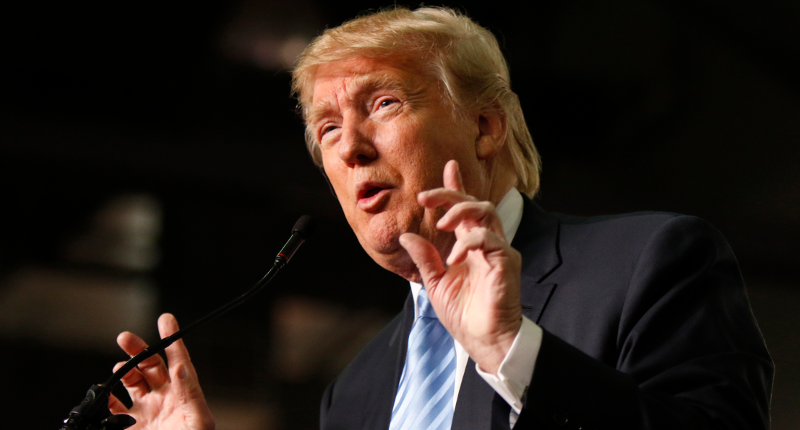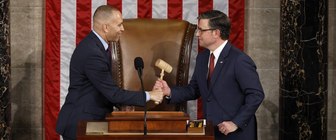Donald Trump and Hillary Clinton both score well on national security issues – but Clinton is the only candidate most voters can see as Commander in Chief
Terrorism has emerged as a campaign issue – and for the first time since the Economist/YouGov Poll started asking in 2009, it now ranks with the economy as the most important issue for Americans. The public sees ISIS as the most serious threat to the United States. Consequently, the characteristics Americans are looking for in a president may change. At the moment, the only candidate Americans see as both tough enough to be President and ready to be Commander in Chief is Hillary Clinton.
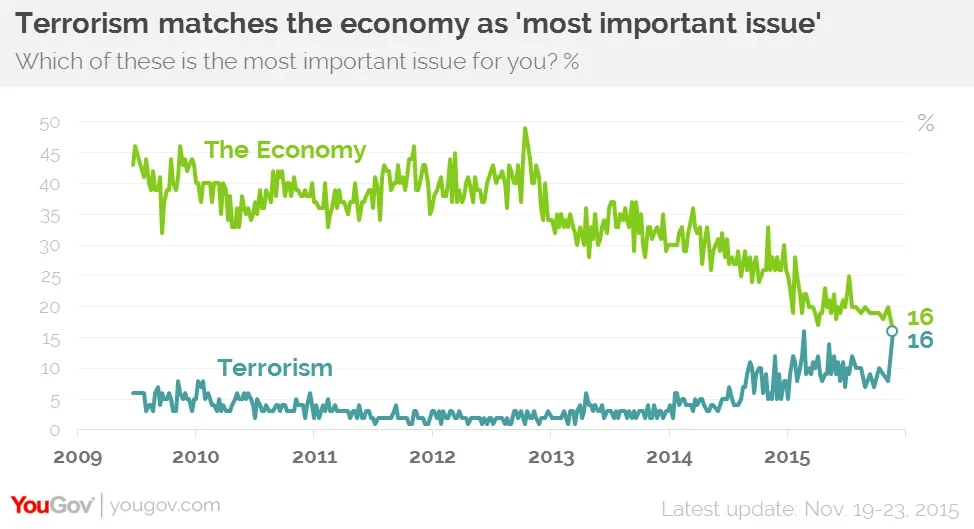
In the last Economist/YouGov Poll, more than twice as many named the economy as cited terrorism as the most important issue for them. This week, the percentage citing terrorism has doubled and now matches the share naming the economy. Republicans are especially concerned about terrorism: nearly one in three cite terrorism as their most important issue, while 18% name the economy. 10% of Republicans cite immigration.
National security is an issue that Republicans have used to their advantage in elections. And more in the public believe that a Republican President would be stronger on national security than a Democratic President would. But even more think it depends on the President. That feeling is even more prevalent among independents, half of whom say it depends on the individual.
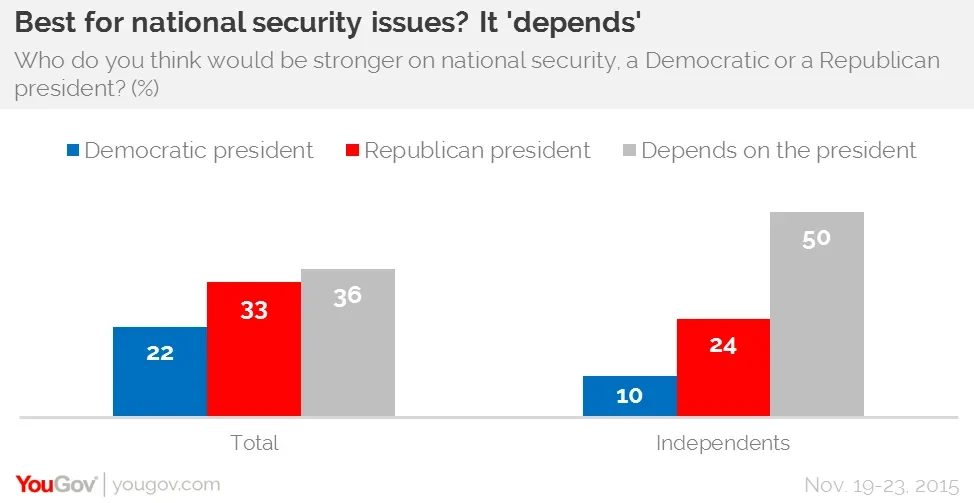
That may be because it is a Democrat candidate, Hillary Clinton, who fares best on several questions that touch on national security issues. She is the only one of seven of the leading Democratic and Republican candidates a majority believes is ready to be Commander in Chief. She is the only one about whom as many people express confidence in her ability to handle an international crisis as say they are uneasy. And she, along with Republican Donald Trump, is seen by a majority of the public as “tough enough” to be president.
Vermont Senator Bernie Sanders is much less likely to score well on these foreign policy-related measures, even among Democrats. While 80% of Democrats say Clinton is ready to be Commander-in-Chief, just 40% think that about Sanders. Only 40% of Democrats say Sanders is “tough enough” to be president; 82% say that about Clinton.
The leading Republican candidates still must convince the public – and many Republicans – about their capabilities in this area. Donald Trump, the Republican frontrunner, is viewed as “tough enough,” but a majority of the public is uneasy about his ability to handle an international crisis and does not believe he is ready to be Commander-in-Chief.
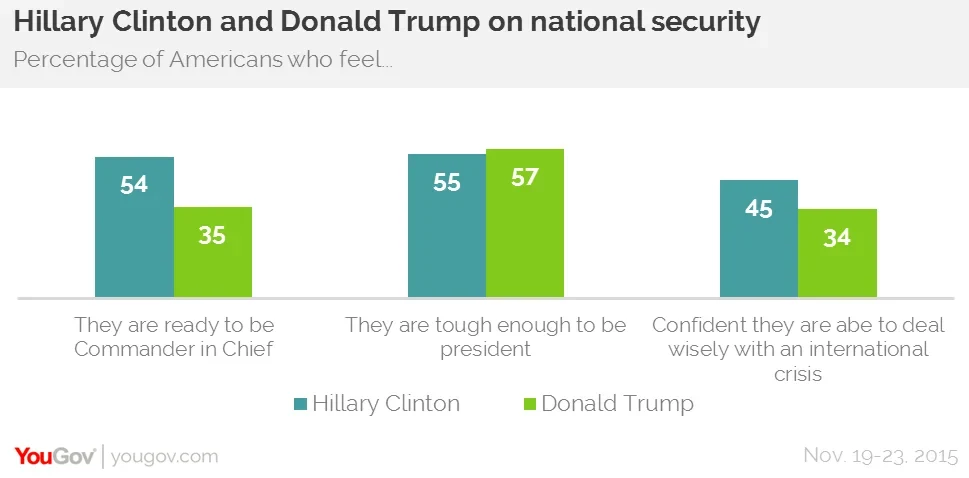
Nearly nine in ten Republicans say Trump is tough enough; two in three are confident he could handle an international crisis and is ready to be Commander in Chief. Trump fares better on all these measures than other Republicans, including three with experience in elected office. Less than half of Republicans give Ben Carson a positive assessment on any of these characteristics. In contrast, majorities of Republicans see former Florida Governor Jeb Bush, Texas Senator Ted Cruz and Florida Senator Marco Rubio as ready to be Commander-in-Chief. Less than half of Republicans, however, think Bush as tough enough or are confident in his ability to handle international crisis. However, none of these three Republicans fare as well with their own party identifiers as Clinton does with hers.
A woman as Commander in Chief would break gender stereotypes; in this poll women and men are equally likely to think Clinton is ready to serve in that capacity.
Clinton and Trump continue to lead in the race for their party’s nomination among both registered voters who identify with the party, and with the group of registered voters who say they will vote in each party’s state primary or caucus next year. That group includes independents – and even some who identify with the opposing party.
On the Republican side, the new emphasis on foreign policy may have hurt Carson, who has slipped back; it has not helped Bush.
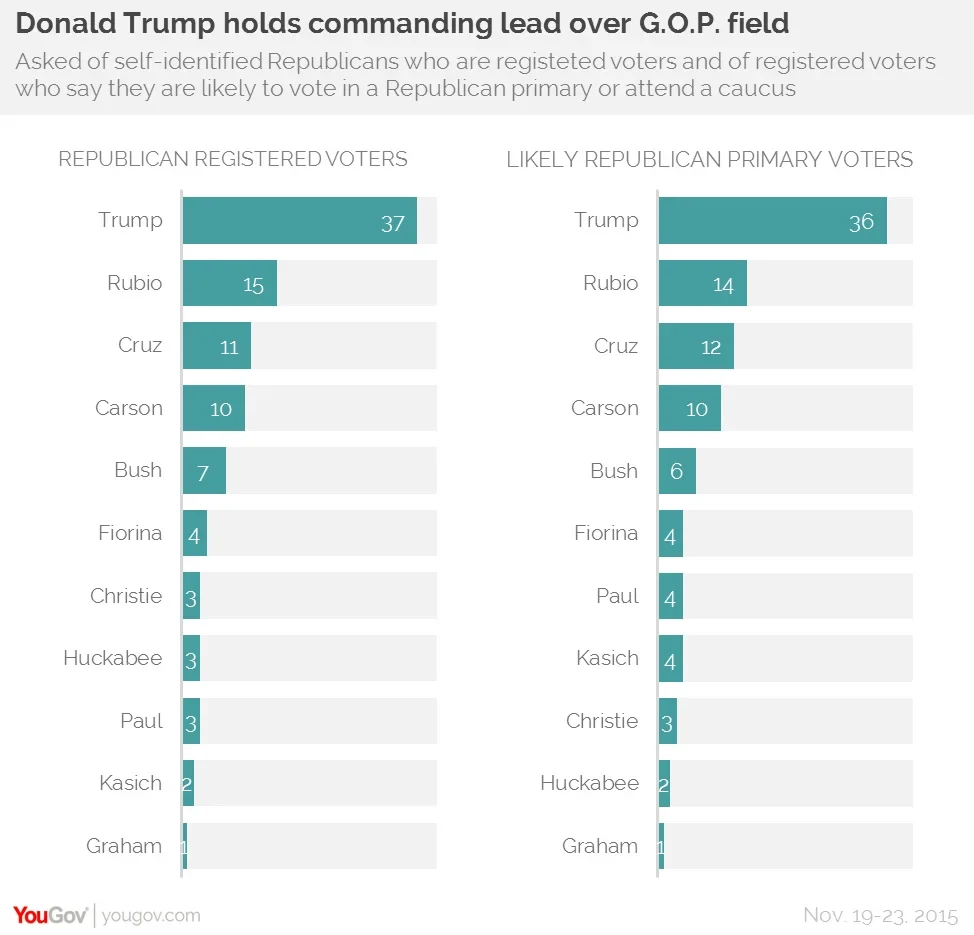
There is little difference in the two groups of Republicans; however, there is a difference in the two groups of Democrats. Clinton is far ahead of Sanders with both Democratic identifiers and those who say they will participate in a Democratic primary or caucus. But her margin is smaller with the likely voter group. Sanders picks up support with independents, who are more favorable towards him than they are towards Clinton. 43% of independents have a favorable opinion of Sanders and only 33% are unfavorable. A majority of independents (54%) have an unfavorable opinion of Clinton.
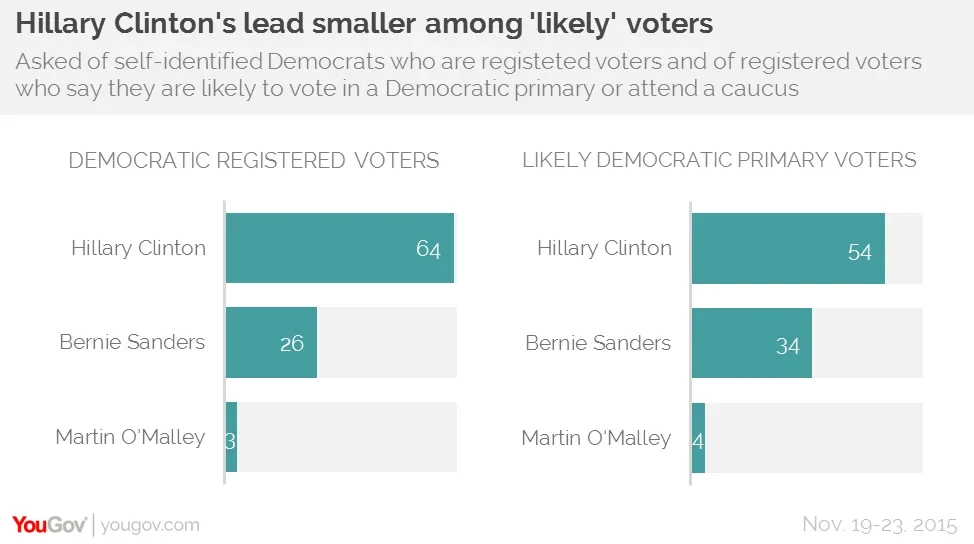
See the Economist/YouGov results
Economist/YouGov poll archives can be found here.
